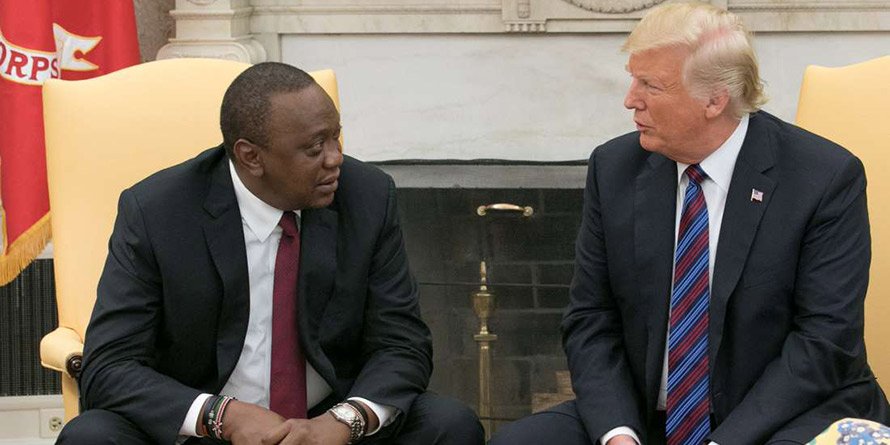President Uhuru Kenyatta and US leader Donald Trump at the White House in Washington, DC during an official visit August 27, 2018 . PHOTO | JOAN PERERUAN | NMG Kenya and the United States have strong and deep-rooted diplomatic relations, which have existed since Kenya attained self-rule.
On February 6, 2020, President Uhuru Kenyatta and President Donald Trump in Washington DC announced the intent for Kenya and the US to negotiate and conclude a Free Trade Area Agreement (FTA).
On July 8, the two countries officially launched negotiations for FTA. According to the World Bank, Kenya is one of Africa’s most dynamic economies and the second-largest beneficiary of Africa Growth Opportunity Act’s (Agoa) tariff benefits.
The US views Kenya as a strategic partner in the region not only in terms of trade but also security. If successful, this agreement would be the first US FTA with a country in sub-Saharan Africa.
The deal would, among others, ensure that there is no disruption of Kenya’s market access to the US after Agoa expires on September 30, 2025, enhance and diversify exports of goods and services into the US under predictable and preferential terms, ensure a market for goods and services in the US, support development of value chains, especially in production and value addition, creation of decent jobs and sustainable livelihoods and increase in the inflow of US foreign direct investment into Kenya.
Beyond Agoa in 2025, Kenya still needs much economic integration with developed economies like the US, Germany, France and China.
Trump’s administration was characterised by a lot of supply chain interruptions and non-commitment to international agreements.
President Trump’s rhetoric, attitude, and his “America First” campaign eroded the US’s hegemonic position and symbiotic ties with other powers and allies in the international scene.
Trump’s unilateral decision to announce the recognition of Jerusalem as the capital of Israel, pulling out of the Paris climate change talks and Huawei, Tik-Tok wars, among others, demonstrated a president who did not understand the importance of foreign relations and global integration.
Due to the technological advancement world over, the structure of the international business environment has changed significantly in recent years. Countries are advocating more integration than building trade walls.
The growth of trade blocs throughout the world has resulted in increasing global supply chain integration. This encourages more information sharing, planning, coordinating and controlling materials, parts and finished goods at the strategic, tactical and operational levels both internally and externally. To succeed […]
